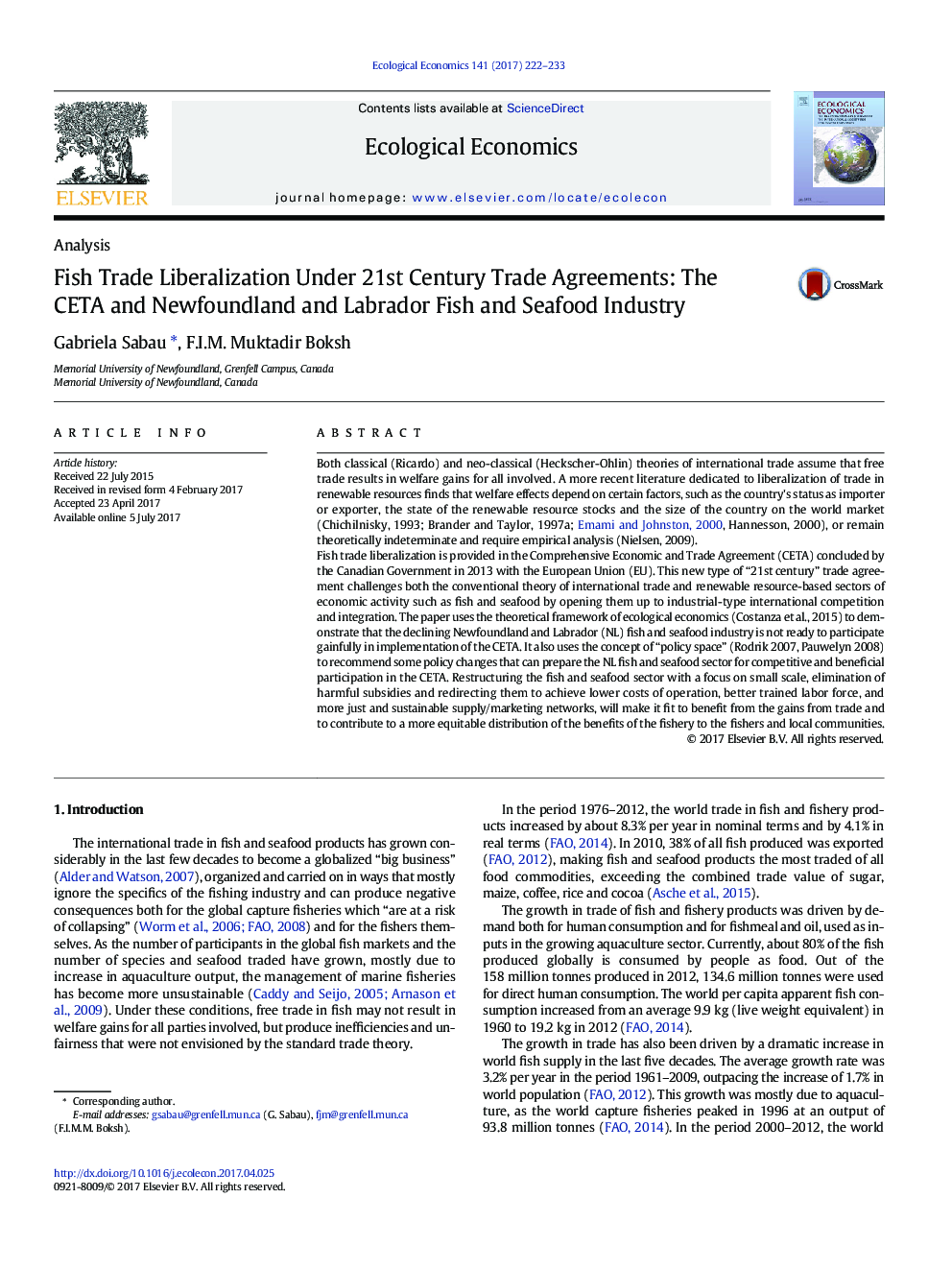| Article ID | Journal | Published Year | Pages | File Type |
|---|---|---|---|---|
| 5048663 | Ecological Economics | 2017 | 12 Pages |
â¢Challenges in the governance of world seafood tradeâ¢The CETA agreement challenges inefficiently managed renewable resource-based sectors of economic activity.â¢The small-scale fisheries are the most important stakeholder in the Newfoundland and Labrador fish and seafood industry.â¢Management changes are needed to prepare the NL fishery for a competitive and gainful participation in the CETA.
Both classical (Ricardo) and neo-classical (Heckscher-Ohlin) theories of international trade assume that free trade results in welfare gains for all involved. A more recent literature dedicated to liberalization of trade in renewable resources finds that welfare effects depend on certain factors, such as the country's status as importer or exporter, the state of the renewable resource stocks and the size of the country on the world market (Chichilnisky, 1993; Brander and Taylor, 1997a; Emami and Johnston, 2000, Hannesson, 2000), or remain theoretically indeterminate and require empirical analysis (Nielsen, 2009).Fish trade liberalization is provided in the Comprehensive Economic and Trade Agreement (CETA) concluded by the Canadian Government in 2013 with the European Union (EU). This new type of “21st century” trade agreement challenges both the conventional theory of international trade and renewable resource-based sectors of economic activity such as fish and seafood by opening them up to industrial-type international competition and integration. The paper uses the theoretical framework of ecological economics (Costanza et al., 2015) to demonstrate that the declining Newfoundland and Labrador (NL) fish and seafood industry is not ready to participate gainfully in implementation of the CETA. It also uses the concept of “policy space” (Rodrik 2007, Pauwelyn 2008) to recommend some policy changes that can prepare the NL fish and seafood sector for competitive and beneficial participation in the CETA. Restructuring the fish and seafood sector with a focus on small scale, elimination of harmful subsidies and redirecting them to achieve lower costs of operation, better trained labor force, and more just and sustainable supply/marketing networks, will make it fit to benefit from the gains from trade and to contribute to a more equitable distribution of the benefits of the fishery to the fishers and local communities.
